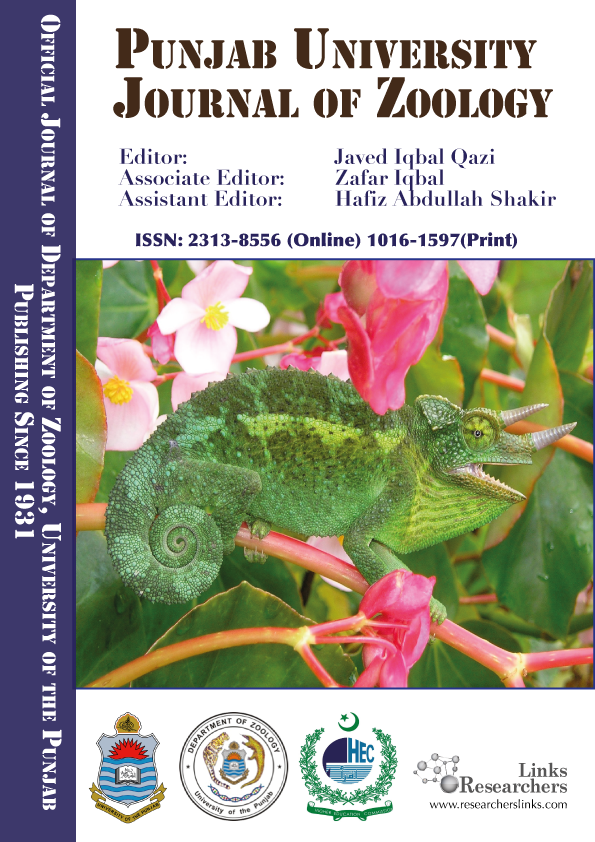Pulse beetle, Callosobruchus maculatus Fab. is a serious, multi-voltine and most destructive cosmopolitan pest in Asian and African countries on various pulses. Considering the target specificity of botanicals and less hazardous than synthetic insecticides, essential oils of orange (Citrus sinensis L.), lemongrass (Cymbopogon citratus Stapf.), eucalyptus (Eucalyptus globulus Labill.) and peppermint (Mentha piperita L.) were evaluated against C. maculatus adults. Each oil was applied at 0.1, 0.5, and 1.0ml doses on the filter paper. A long glass cylinder divided into three (A, B, and C) sections, supplied with 20g cowpea seeds at ends was used in the study. Ten freshly emerged male and female C. maculatus adults were released separately in the middle of B with the help of aspirator as treated (with oil) and untreated filter were placed at A and C sections, respectively. The number of adults were counted at A and C after 24 and 48 h to calculate the repellent efficacy and mortality percentage. All the essential oils showed pesticidal potential with orange and lemongrass found to be more effective in causing mortality of both male and female C. maculatus, whereas the peppermint and eucalyptus were found to be more repellent. The pesticidal potential of all oils increased with increasing doses and exposure timings. Maximum mortality and repellency of females after 48 h was recorded in orange oil (100.00±0.00%) and peppermint oil (90.00±0.00%), respectively, both applied at rate of 1.0ml dose, whereas maximum mortality and repellency of males after 48 h was also recorded in orange oil (96.67±3.33%) and peppermint (90.00±0.00%), respectively, applied at rate of 1.0ml dose. After 48 h, the lowest (0.008) and highest (0.095) LD50 values against C. maculatus female were recorded for orange and eucalyptus essential oils, respectively. The lowest (0.030 ml) and highest (0.057) LD50 values against C. maculatus males were also recorded for orange and eucalyptus essential oils, respectively. Thus, all the essential oils were found equally effective against both male and female C. maculatus. Therefore, it is suggested that the essential oils of orange or peppermint may be applied in the warehouses against C. maculatus to restrict their damage.
Novelty Statement | The essential oils of orange, lemongrass, eucalyptus, and peppermint were evaluated at 0.1, 0.5, and 1.0ml doses against adult male and female C. maculatus. All the essential oils were found effective to cause mortality and repellence in both the sexes with maximum mortality and repellency recorded in orange and peppermint oils, respectively. Pesticidal potential of all oils increased with increasing doses and exposure time against both the sexes of C. maculatus.







